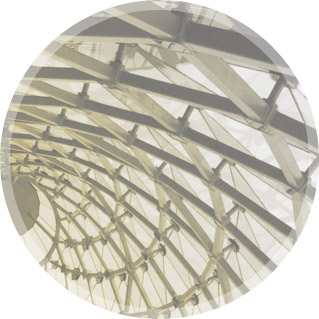Belmont University
Department of Architecture
Belmont University is strongly mission-driven, committed to the goal of equipping students for lives of meaning and significance. The University’s identity draws from a Christian heritage of service that is evident across curricula that are delivered by faculty who are professing Christians. Focused on nurturing the whole person, the University supports programs in social and spiritual development in addition to its academic programming. All curricula are student-centered and join general studies and professional preparation within a collaborative and creative community.
Shaped by the University’s mission, Belmont’s architecture program aims to prepare future citizen architects to improve the world through the process and medium of building, with special emphases on environmental sustainability and social equity.
Belmont’s architecture program represents a distinct approach to architectural education within a faith-filled, liberal arts setting that emphasizes vocational discernment and student choice and will provide thorough preparation for practice through rigorous coursework focused on the various needs required by the discipline. Belmont graduates will have a distinct focus to serve people by imagining, designing, and realizing a better, more beautiful, and more just world.
Join us to find your purpose in our creative community.

Setting

Programs

of Focus

Opportunities

Facilities

Policies
Belmont’s architecture program is housed in the O’More College of Architecture and Design, which offers degrees in architecture, interior design and fashion design & merchandising, creating a vibrant ecosystem dedicated to professional design disciplines. While the college is small enough to ensure small class sizes, it is also part of a mid-sized, private university that is big enough to offer generous academic exploration and multi-disciplinary integration, diverse student services, and extra-curricular activities. Our lush campus is less than two miles from downtown Nashville, allowing faculty and students to easily participate in a vibrant design community and enjoy connections with several professional and creative organizations and nonprofits.
School Philosophy
Following the University’s mission, our program brings together “the best of liberal arts and professional education in a Christian community of learning and service.” Our program intentionally links general studies with architectural coursework: for example, requiring environmental science as the required lab science and as a foundation to projects in sustainability throughout the curriculum. It also integrates within the discipline, linking between history, technology, and design coursework. We believe in synthesis and collaboration as hallmarks of education in all fields, especially one as naturally complex and integrated as architecture.
We ensure that students are well-versed in traditional methods of hand production (both in drawing and model-making) as a basis for developing skills in newer technologies. Throughout the program, we emphasize principles that do not age and transferrable skills and ways of knowing that will serve graduates to adapt within a flexible work environment. The five-year B.Arch. offers a strong curriculum in architectural design, history, and technology, with emphases on all realms of sustainability (environmental, cultural, and economic) and social equity, while preserving 18 hours of elective credits for students to study for a minor or take any variety of courses that interest them. The four-year B.S.A.S. is appropriate for students who have already determined a need for an additional kind of professional education and will prepare them for graduate school.
1. Art & Design
2.Building Technology
3. Public Health
4. Community Design
5. History | Theory | Criticism
6. Urbanism
7. Interior Design
8. Sustainability & High-Performance Built Environments
Transfer Policies
- Determination of eligibility for general education transfer credit will be determined by the Office of the Registrar.
- Determination of eligibility for architecture program requirements transfer credit (ARC courses) will be determined by the Chair of the Department of Architecture, based on:
- of general course content
- Demonstration of achievement of applicable NAAB-defined Program or Student Criteria
- Students requesting that courses completed at another institution be considered for Belmont ARC credit must submit to the Department Chair:
- that institution’s catalog description for the course and
- the syllabus for the semester it was taken.
- For some courses, the Chair may also request examples of coursework. In most cases, transfer courses proposed for credit for Belmont ARC courses numbered 3000- or higher must be completed in an NAAB-accredited program.
- The Architecture Program at Belmont currently has no established articulation agreement with other institutions and does not award credit for other prior learning experience.



